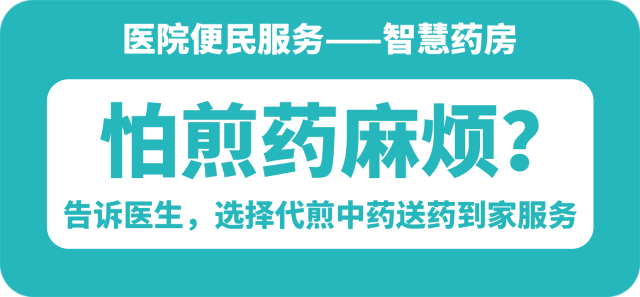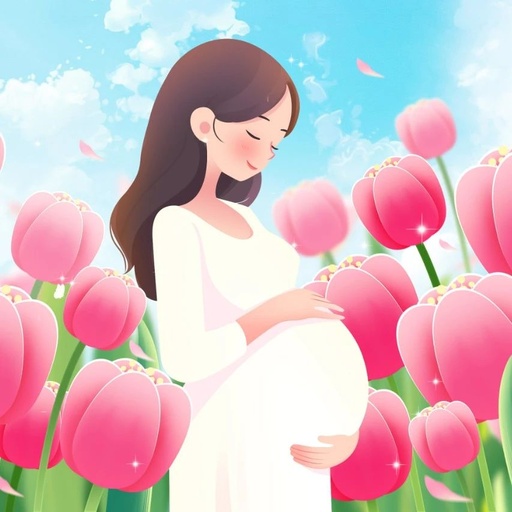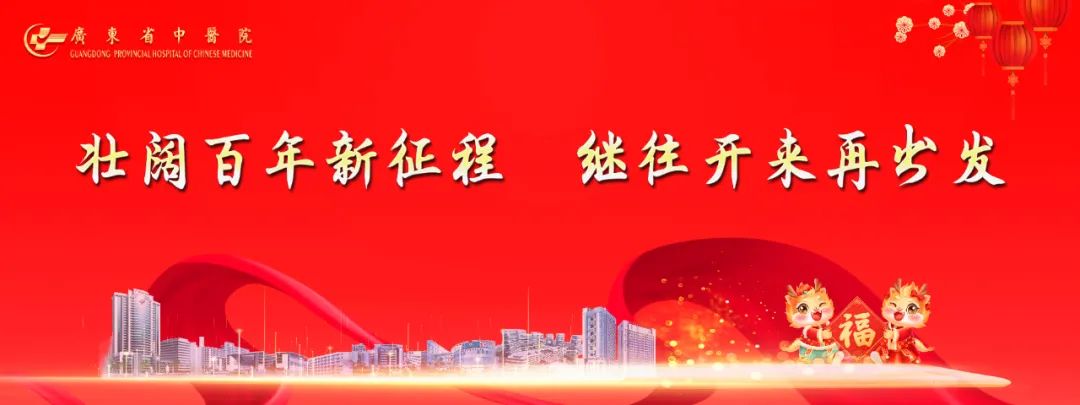 Introduction:
Introduction:
The culture of Traditional Chinese Medicine (TCM) has a long history, and when applied correctly, TCM can yield immediate results in treating diseases. Professor Li Xiaobin, with over 30 years of medical experience, specializes in using classical formulas to treat gynecological disorders. He leads the gynecology team at Ersha Island Hospital, focusing on the inheritance and innovation of TCM, applying classical formulas to treat common and difficult gynecological diseases as well as postoperative recovery, achieving remarkable results. Therefore, this column is initiated to share experiences with everyone.

Ms. Xu, 30 years old, underwent a dilation and curettage after a missed abortion at 5 weeks of pregnancy in June 2021. Since then, she has not used contraception for 2 years but has not conceived, leading to significant anxiety. She was referred to Professor Li Xiaobin’s outpatient clinic at Guangdong Provincial Hospital of Traditional Chinese Medicine on June 29, 2023.

 First Consultation (June 29, 2023)
First Consultation (June 29, 2023)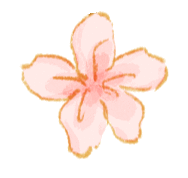
The patient has regular menstrual cycles, approximately every 35 days, lasting 5 days with moderate flow. She experiences significant premenstrual irritability, with her last menstrual period on June 11, 2023, accompanied by dysmenorrhea and acne before menstruation. Her appetite is average, and she often stays up late until midnight, with fair sleep quality and normal urination and defecation. Her lips are pale, tongue is light red, with prominent and tortuous veins on the underside, thin white coating, and a slippery and thin pulse. At 30 years old, with a history of adverse pregnancy outcomes, after thorough communication, a series of tests related to spontaneous abortion were suggested: results indicated that ovarian reserve function is good, but there are several abnormal findings.
Anti-Müllerian Hormone (AMH): 5.860 ng/ml;Coagulation Profile: Prothrombin Time (PT): 9.9s, Prothrombin Activity (PT%): 132.8%;
Autoimmune Profile: Antinuclear Antibody (ANA), positive (+). Antinuclear Antibody Type 1, Nucleolar Type. Antinuclear Antibody Titer 1, 1:100, Antinuclear Antibody Titer 2, 1:100;Homocysteine (HCY): 9.90 umol/L.
Diagnosis: Infertility, thrombophilic state, autoimmune abnormalities; TCM pattern differentiation: Qi deficiency and blood stasis;
Therefore, conventional Western medicine treatment included enteric-coated aspirin, hydroxychloroquine sulfate, and oral folic acid for symptomatic treatment. TCM treatment focused on warming the meridians, tonifying deficiency, and invigorating blood circulation to resolve stasis. The herbal formula prescribed was the original formula of “Women’s Complete Good Formulas” (Nüzi Quanzhen Liangfang) – Warming the Meridians Decoction, with the following ingredients: Chuanxiong (Chuanxiong Rhizome) 10g, Zhi Gan Cao (Honey-fried Licorice) 5g, Dang Gui (Angelica Sinensis) 15g, Gui Zhi (Cinnamon Twig) 10g, E Zhu (Curcuma Zedoaria) 15g, Dang Shen (Codonopsis) 15g, Dan Pi (Moutan Cortex) 10g, Jiu Chuan Niu Xi (Wine-prepared Achyranthes) 15g, Chi Shao (Red Peony Root) 20g, for 7 doses, decocted in water for oral administration.
Additionally, the patient was advised to avoid staying up late and to engage in appropriate exercise, especially aerobic exercises for the lower limbs.
 Second Consultation (July 6, 2023)
Second Consultation (July 6, 2023)
Symptoms remained largely the same, with improved tortuous veins on the underside of the tongue, and a wiry and slippery pulse. The herbal decoction was adjusted by adding Huang Qi (Astragalus) 25g and Chao Bai Zhu (Fried Atractylodes) 15g, for 14 doses, decocted in water for oral administration.
 Third Consultation (July 26, 2023)
Third Consultation (July 26, 2023)
Reported breast tenderness, lower abdominal distension, and acne on the chin, with tongue and pulse similar to previous visits. Urine pregnancy test today was negative. The herbal decoction was maintained at 14 doses, decocted in water for oral administration.
 Fourth Consultation (September 14, 2023)
Fourth Consultation (September 14, 2023)
On July 28, the patient had her menstrual period, lasting 8 days with reduced dysmenorrhea and blood clots. Due to a COVID-19 infection, medication was paused. The last menstrual period was on September 11, currently on the 4th day of menstruation, feeling cold, with breast tenderness, lower abdominal distension, and acne on the chin, with tongue and pulse similar to previous visits. The herbal decoction was adjusted by removing Niu Xi (Achyranthes) and adding Shan Yao (Chinese Yam) 15g, for 14 doses, decocted in water for oral administration.
 Fifth Consultation (November 22, 2023)
Fifth Consultation (November 22, 2023)
In early October, menstruation occurred with moderate flow, lasting 5 days; the last menstrual period was on November 6. The patient’s lip color showed significant improvement, tongue was light red, and the tortuous veins on the underside were nearly invisible, with a thin and slippery pulse. The herbal decoction was maintained at 14 doses, decocted in water for oral administration. The patient was advised that she could start preparing for pregnancy.
 Sixth Consultation (March 13, 2024)
Sixth Consultation (March 13, 2024)
The patient came to share good news; she is pregnant with a dragon baby. On March 12, local hospital blood test showed HCG: 29931.0 U/L, progesterone 14.41 ng/ml. Gynecological ultrasound indicated early intrauterine pregnancy with visible fetal heartbeat. No significant discomfort was reported, tongue was light red, and the tortuous veins on the underside were more pronounced than before pregnancy, with thin white coating and slippery pulse.
Due to her history of adverse pregnancy outcomes, she was advised to recheck the previously abnormal indicators, which revealed that her autoimmune abnormalities and thrombophilic state had worsened, necessitating caution;
On March 3, 2024, recheck results indicated: Autoimmune Profile 12 items Antinuclear Antibody (ANA), positive (+). Antinuclear Antibody Titer 1, 1:320; Antinuclear Antibody Titer 2, 1:320; Coagulation Profile: Prothrombin Time (PT): 9.10.2s, Prothrombin Activity (PT%): 112.1%; Fibrinogen (FIB): 4.04g/L. Homocysteine (HCY): 7.76 umol/L. Routine TEG: Angle 72.8 degrees.
Western medicine continued with oral hydroxychloroquine sulfate, subcutaneous injection of low molecular weight heparin for anticoagulation, and intramuscular progesterone for luteal support. The herbal decoction was adjusted to Taiyuan Decoction, with the following ingredients: Shu Dang Shen (Cooked Codonopsis) 20g, Bai Zhu (White Atractylodes) 10g, Zhi Gan Cao (Honey-fried Licorice) 5g, Dang Gui (Angelica Sinensis) 10g, Chi Shao (Red Peony Root) 10g, Shu Di Huang (Rehmannia) 15g, Du Zhong (Eucommia) 10g, Chen Pi (Tangerine Peel) 5g, Sang Ji Sheng (Mulberry Mistletoe) 15g, Tu Si Zi (Dodder Seed) 20g, Dan Shen (Salvia) 10g, for 7 doses, decocted in water for oral administration.
 Follow-up
Follow-up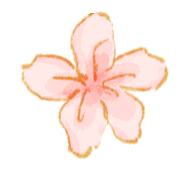
The patient will continue regular follow-ups, with adjustments to Taiyuan Decoction as needed. The embryo is developing well, and the mother reports no discomfort. As of April 2, 2024, HCG was 118716 U/L, progesterone 21.9 ng/ml, and gynecological ultrasound indicated early intrauterine pregnancy, approximately 9 weeks, with a viable fetus. Follow-up has continued, and she is now 12 weeks pregnant and has been referred to the obstetrics department for prenatal care, successfully passing the early pregnancy stage.
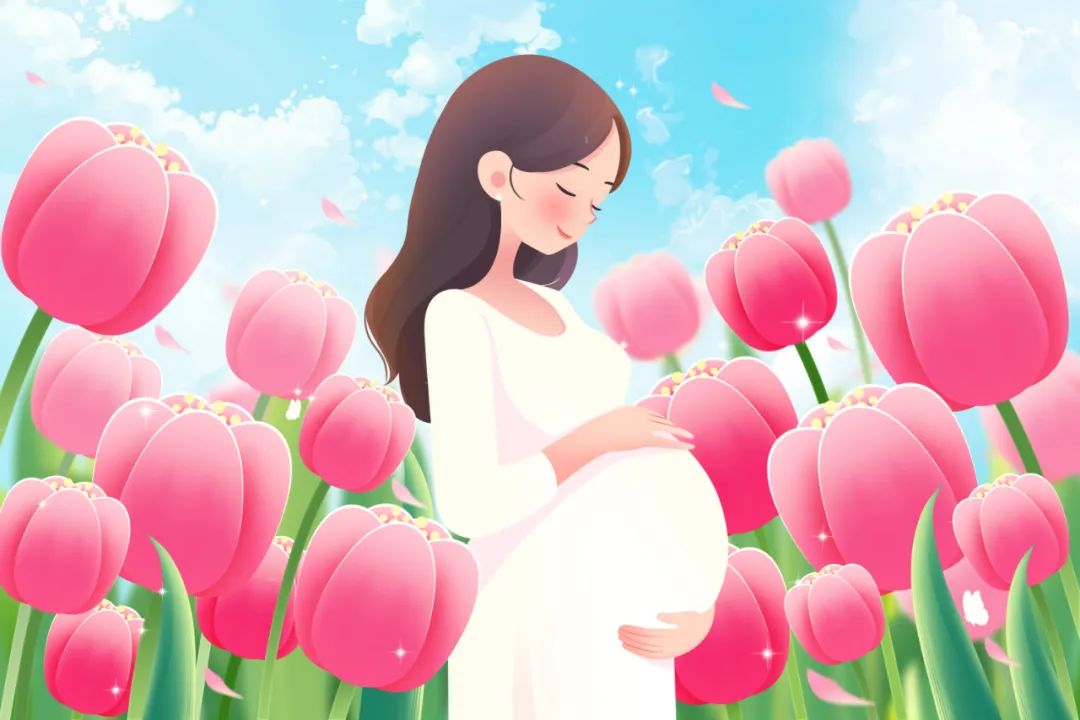
 [Infertility]Infertility is defined as a woman living with her partner for one year, engaging in normal sexual activity without contraception and not achieving pregnancy. The term infertility first appeared in the “I Ching”. The “Emergency Essential Prescriptions” refers to primary infertility, which is defined as never having been pregnant, while secondary infertility refers to those who have been pregnant before but have not conceived for over a year without contraception, termed “disrupted continuity”. The “Authentic Gynecology: General Discussion on Procreation” states: “When the male essence is strong and the female cycle is regulated, there is a way to conceive,” indicating that the basic conditions for conception are that both parties have abundant kidney qi, the heavenly essence arrives, and the Ren and Chong meridians are vigorous. If the woman’s menstruation is timely and the man’s essence is abundant, timely union can lead to conception. Therefore, insufficient kidney qi, liver stagnation, and blood stasis can disrupt the balance of the Chong and Ren meridians, while phlegm and dampness can obstruct the uterus, leading to infertility.Western medicine considers female factors primarily to be ovulatory disorders and pelvic factors, which include congenital reproductive system malformations, cervical factors, tubal and surrounding lesions, and endometriosis. Additionally, there are immune factors and unexplained infertility.
[Infertility]Infertility is defined as a woman living with her partner for one year, engaging in normal sexual activity without contraception and not achieving pregnancy. The term infertility first appeared in the “I Ching”. The “Emergency Essential Prescriptions” refers to primary infertility, which is defined as never having been pregnant, while secondary infertility refers to those who have been pregnant before but have not conceived for over a year without contraception, termed “disrupted continuity”. The “Authentic Gynecology: General Discussion on Procreation” states: “When the male essence is strong and the female cycle is regulated, there is a way to conceive,” indicating that the basic conditions for conception are that both parties have abundant kidney qi, the heavenly essence arrives, and the Ren and Chong meridians are vigorous. If the woman’s menstruation is timely and the man’s essence is abundant, timely union can lead to conception. Therefore, insufficient kidney qi, liver stagnation, and blood stasis can disrupt the balance of the Chong and Ren meridians, while phlegm and dampness can obstruct the uterus, leading to infertility.Western medicine considers female factors primarily to be ovulatory disorders and pelvic factors, which include congenital reproductive system malformations, cervical factors, tubal and surrounding lesions, and endometriosis. Additionally, there are immune factors and unexplained infertility.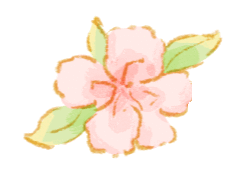
[Commentary]
The patient had not conceived for over a year after a missed abortion, with a clear diagnosis of infertility, which belongs to disrupted continuity. The patient experienced delayed menstruation, accompanied by premenstrual irritability and dysmenorrhea. Observing the prominent tortuous veins on the underside of the tongue and a slippery and thin pulse, the pattern differentiation indicates blood stasis. The pale lip color suggests cold accumulation. Cold accumulation and blood stasis obstruct the Chong and Ren meridians, preventing timely overflow of blood, hence the delayed menstruation; blood stasis leads to obstructed qi flow, particularly before menstruation when the Chong and Ren qi and blood are abundant, causing further obstruction and resulting in dysmenorrhea; blood stasis obstructs the Chong and Ren meridians, preventing conception. The treatment should warm the meridians, tonify deficiency, and invigorate blood circulation to resolve stasis, thus the formula “Women’s Complete Good Formulas” (Nüzi Quanzhen Liangfang) – Warming the Meridians Decoction was selected.The Warming the Meridians Decoction is derived from “Women’s Complete Good Formulas: Discussion on Menstrual Flow or Not” (Chapter 12), stating: “If the menstrual flow is obstructed, with cold pain around the navel, the pulse is tight and deep. This is due to cold qi invading the blood chamber, causing blood to congeal and accumulate, leading to pain. It is like water freezing in cold weather; thus, Warming the Meridians Decoction is indicated…”. Ingredients include: Dang Gui, Chuanxiong, Shaoyao, Gui Xin, Mudan Pi, E Zhu, each 15g; Ren Shen, Gan Cao, Niu Xi, each 10g. Each dose is 5 qian (15g), boiled with one cup of water until reduced to 80%, filtered, and taken warm. This formula uses Gui Xin to warm and disperse cold, E Zhu, Dan Pi, and Niu Xi to invigorate blood and resolve stasis, Chi Shao, Dang Gui, and Chuanxiong to nourish and invigorate blood, Ren Shen and Gan Cao to tonify the middle qi, and Shaoyao combined with Gan Cao to relieve pain, achieving the overall effect of warming the meridians, invigorating blood, and resolving stasis.Since the patient did not exhibit significant kidney yang deficiency, Gui Zhi was substituted with Rou Gui to reduce its warming kidney effect, focusing instead on the warming and unblocking function of Gui Zhi. After 7 doses, the second consultation showed a reduction in the tortuous veins on the underside of the tongue, indicating progress. Therefore, the treatment was continued, and Huang Qi and Bai Zhu were added to tonify the middle qi, aiming for sufficient qi to promote blood flow. Subsequent visits showed reduced dysmenorrhea, fewer blood clots, and significant improvement in the tortuous veins on the underside of the tongue, with menstruation occurring on time. With the removal of blood stasis, the Chong and Ren meridians were regulated, leading to successful conception.After pregnancy, the patient exhibited a further increase in the tortuous veins on the underside of the tongue, coinciding with the worsening of Western medical indicators. This suggests blood stasis obstructing the meridians, leading to disharmony of qi and blood, which hinders the embryo’s development. Therefore, Taiyuan Decoction was selected to harmonize qi and blood, tonify the kidney, and stabilize the pregnancy, with Chi Shao replacing Bai Shao to promote blood circulation and invigorate the uterus, and Dan Shen added to enhance the effects of invigorating blood and stabilizing the pregnancy.In Western medicine, the patient belongs to a group prone to thrombosis, indicating a hypercoagulable state that can lead to microthrombus formation in the uterine spiral arteries or chorionic blood vessels during early pregnancy, resulting in insufficient placental perfusion. This aligns with TCM’s understanding of blood stasis: blood that is “thick, sticky, congealed, and aggregated” stagnates in the organs and meridians, obstructing qi flow, preventing nourishment to the obstructed areas, thus affecting the uterus and meridians, leading to infertility. After pregnancy, blood stasis in the uterus can prevent the embryo from receiving nourishment, resulting in instability. Therefore, Western medicine employs antiplatelet and anticoagulant treatments, while TCM uses invigorating blood and resolving stasis, both approaches are complementary.Additionally, observing the prescriptions from the first to the fifth consultations, there were no significant changes in the prescriptions. It is common for patients to travel long distances for consultations, only to find that the prescriptions are similar with minor adjustments, which may lead to feelings of disappointment. However, TCM emphasizes pattern differentiation and treatment; as long as the causes, locations, nature, severity, and the body’s resistance to disease remain unchanged, the pattern remains the same, and thus the treatment method can remain consistent. If symptoms improve after medication, maintaining the same prescription can yield good results, which is referred to as “effect without changing the prescription”.

 Department IntroductionDepartment Introduction
Department IntroductionDepartment Introduction
The Gynecology Department of Ersha Island Hospital, Guangdong Provincial Hospital of Traditional Chinese Medicine, is a national key specialty, with significant advantages in TCM for perimenopausal, gynecological tumors, reproductive endocrinology, menstrual regulation, and pelvic floor diseases. It provides comprehensive services for patients, including preventive care and clinical treatment for conditions such as endometriosis, polycystic ovary syndrome, and menopausal syndrome.
It has a team of highly ethical, skilled, and experienced professionals; performing complex and high-risk gynecological minimally invasive surgeries, such as laparoscopic total hysterectomy, ovarian cancer staging surgery, renal vein level aortic lymph node dissection, laparoscopic uterine/vaginal sacrocolpopexy, total pelvic reconstruction, and tension-free mid-urethral sling surgery, all at an advanced level in the country. Single-port laparoscopic surgery is also performed, praised by patients for its small incisions, quick recovery, and aesthetic outcomes.
During the perioperative period, a combination of TCM and Western medicine is employed, with TCM treatment based on the patient’s constitution, including pattern differentiation, internal and external treatment, acupuncture and herbal medicine, dietary therapy, and emotional support, allowing for rapid recovery and significantly reducing postoperative complications and preventing disease recurrence.
Expert Introduction
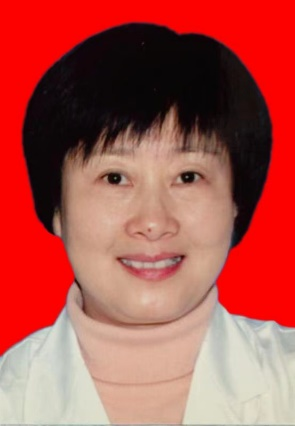
Wang Xiaoyun
National Leading Talent in Traditional Chinese Medicine, “Qihuang Scholar”, renowned TCM physician in Guangdong Province, doctoral supervisor, and postdoctoral cooperative supervisor. Academic successor of Professor Lu Zhizheng, the first “National Master of Traditional Chinese Medicine”, and a guiding teacher for the fifth and seventh batches of national experienced TCM experts. Head of the key gynecology discipline at Guangzhou University of Chinese Medicine and the gynecology academic leader at Guangdong Provincial Hospital of Traditional Chinese Medicine. President of the Gynecology Branch of the Chinese Ethnic Medicine Association.Specializes in: Combined acupuncture and herbal medicine treatment for gynecological reproductive endocrine diseases such as premature ovarian failure, menopausal syndrome, infertility, recurrent miscarriage, depression, severe sleep disorders, recurrent endometriosis, advanced gynecological malignancies, and recurrent malignant tumors.Consultation Hours: Monday and Wednesday afternoonsLocation: Ersha Island Hospital, Guangdong Provincial Hospital of Traditional Chinese MedicineExpert Introduction
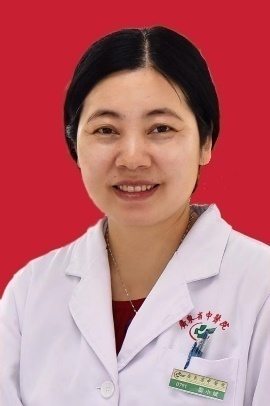
Li Xiaobin
Chief TCM Physician, Master’s Supervisor, Senior Level II, renowned young physician in the Chinese Academy of Sciences, distinguished physician in Guangdong Province, Lingnan famous doctor, third “Good Doctor of Yangcheng”, academic successor of Professor Li Liyun, a renowned TCM physician in Guangdong Province, outstanding clinical talent in TCM, and top talent at Guangdong Provincial Hospital of Traditional Chinese Medicine. Chairman of the sixth Gynecology Committee of the Guangdong Association of Integrative Medicine, and Vice Chairman of the Gynecology Committee of the Chinese Ethnic Medicine Association.Specializes in: Integrative treatment of infertility, menstrual disorders, gynecological tumors, and gynecological endocrine diseases. Various abdominal, vaginal surgeries, hysteroscopy, and laparoscopic minimally invasive surgeries. Radical surgery for malignant tumors and pelvic lymphadenectomy.Consultation Hours: Monday, Wednesday, and Thursday afternoons
Consultation Location: Ersha Island Hospital, Guangdong Provincial Hospital of Traditional Chinese Medicine
 Hu XiangdanMD, Chief TCM Physician, Level B Senior, Master’s Supervisor. Trained under National Master Wang Qingguo, renowned TCM physician Li Liyun, and Professor Huang Jianling. A famous doctor in Lingnan, awarded the ninth “Good Doctor of Yangcheng”, the second “Outstanding Young and Middle-aged Doctor in Guangdong”, and a top talent at Guangdong Provincial Hospital of Traditional Chinese Medicine. Currently serves as Vice Chairman of the Reproductive Medicine Branch of the Chinese Sexology Association, Chairman of the Female Urology Branch of the Guangdong Urology Association, and a standing committee member of the Gynecological Oncology Committee of the Guangdong Association of Traditional Chinese Medicine.Specializes in: Minimally invasive and open surgeries for gynecological benign and malignant tumors. Integrative treatment of female sexually transmitted diseases, polycystic ovary syndrome, female pelvic floor dysfunction, uterine fibroids, endometriosis, infertility, and habitual miscarriage. Principal investigator for two National Natural Science Foundation projects, three provincial-level projects, and multiple departmental projects.Consultation Hours: Tuesday and Friday afternoons (Ersha Island Hospital, Guangdong Provincial Hospital of Traditional Chinese Medicine)Author Introduction
Hu XiangdanMD, Chief TCM Physician, Level B Senior, Master’s Supervisor. Trained under National Master Wang Qingguo, renowned TCM physician Li Liyun, and Professor Huang Jianling. A famous doctor in Lingnan, awarded the ninth “Good Doctor of Yangcheng”, the second “Outstanding Young and Middle-aged Doctor in Guangdong”, and a top talent at Guangdong Provincial Hospital of Traditional Chinese Medicine. Currently serves as Vice Chairman of the Reproductive Medicine Branch of the Chinese Sexology Association, Chairman of the Female Urology Branch of the Guangdong Urology Association, and a standing committee member of the Gynecological Oncology Committee of the Guangdong Association of Traditional Chinese Medicine.Specializes in: Minimally invasive and open surgeries for gynecological benign and malignant tumors. Integrative treatment of female sexually transmitted diseases, polycystic ovary syndrome, female pelvic floor dysfunction, uterine fibroids, endometriosis, infertility, and habitual miscarriage. Principal investigator for two National Natural Science Foundation projects, three provincial-level projects, and multiple departmental projects.Consultation Hours: Tuesday and Friday afternoons (Ersha Island Hospital, Guangdong Provincial Hospital of Traditional Chinese Medicine)Author Introduction  Jiang JialinResident Physician, Master of Medicine. Specializes in integrative treatment of gynecological inflammation, endocrine diseases, female infertility, early pregnancy-related diseases, and common gynecological diseases during the perimenopausal period; proficient in family planning surgeries, hysteroscopy, and other basic gynecological procedures.
Jiang JialinResident Physician, Master of Medicine. Specializes in integrative treatment of gynecological inflammation, endocrine diseases, female infertility, early pregnancy-related diseases, and common gynecological diseases during the perimenopausal period; proficient in family planning surgeries, hysteroscopy, and other basic gynecological procedures.

Contributed by:Ersha Island Hospital, Guangdong Provincial Hospital of Traditional Chinese Medicine Jiang Jialin Li XiaobinExecutive Editor:LiYunqiReviewed by: Wang JunfeiEditor:Song Liping
